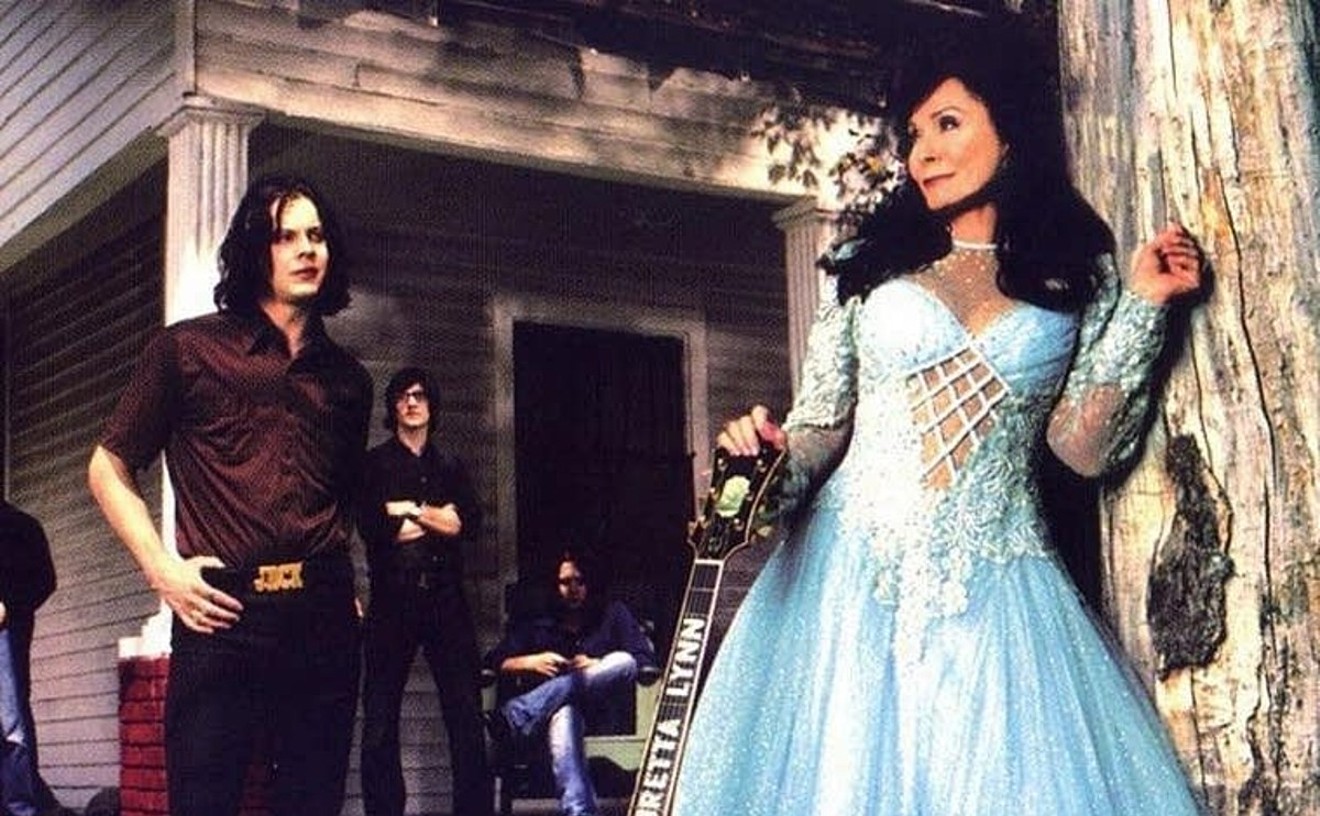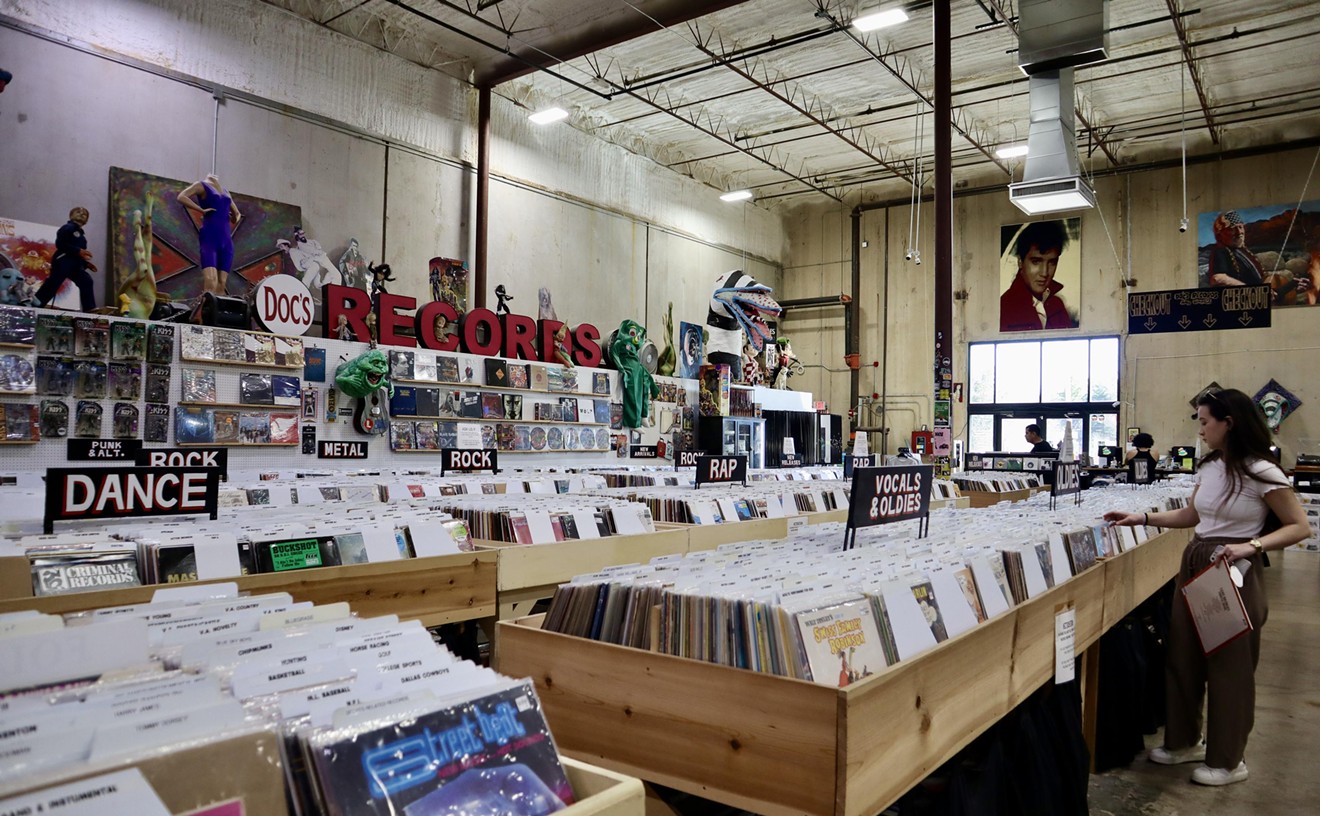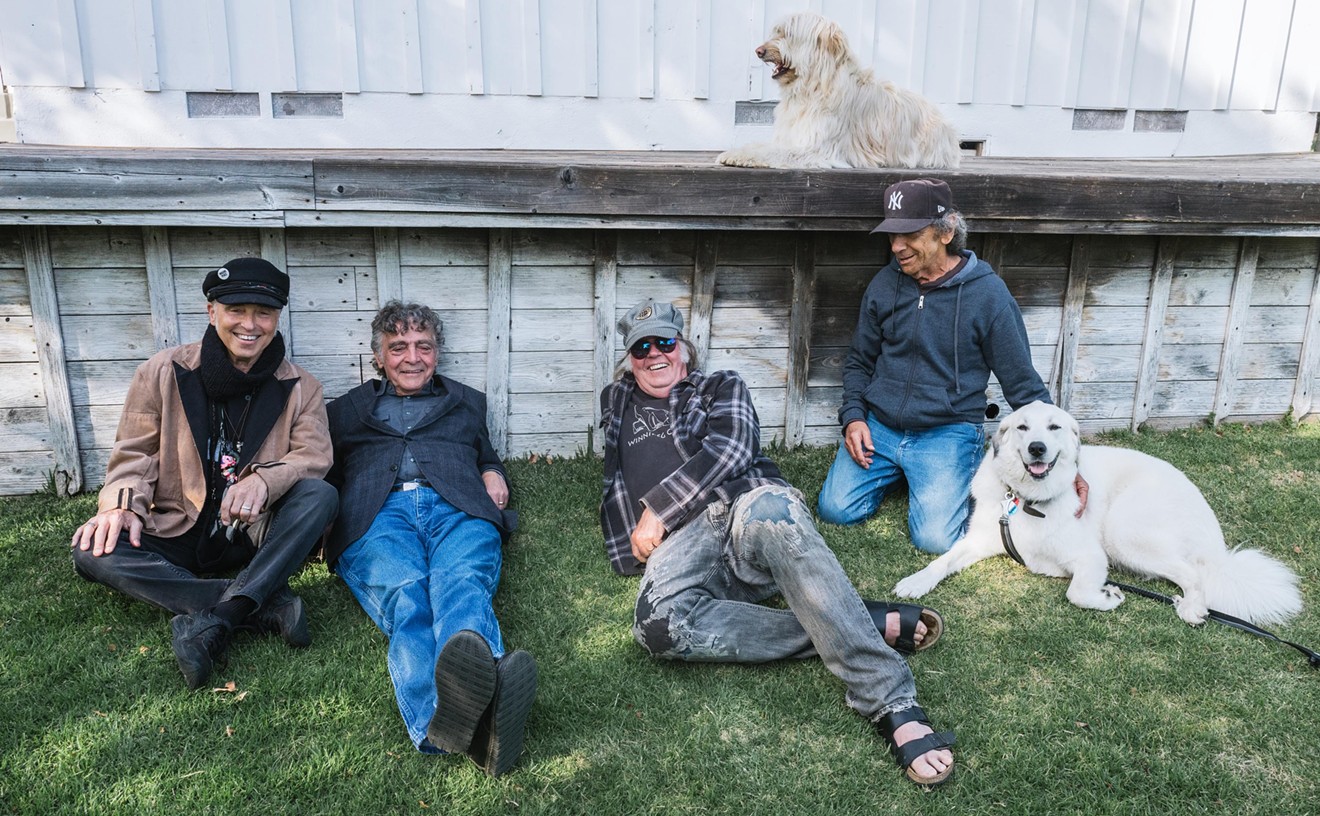Wisener created not only a longtime business for himself, but a refuge for like-minded music lovers, a place where one could browse interminably or watch an occasional local show. He molded the local music industry through his shop’s selection. It’s impossible to assess how different DFW’s nightlife would sound had it not been for Wisener’s influence over such a large sample of its key players.
On Sunday night, the Kessler Theater held an event to celebrate Wisener’s life, organized by the venue’s artistic director, Jeff Liles, a longtime friend of Wisener’s who told The Dallas Morning News: “Bill’s was such a part of my teenage years. It was the center of gravity for DJs, for alternative culture (...) I wouldn’t be in the music business were it not for Bill.”
Many of Wisener’s peers came by the theater to pay their respects, including radio veteran George Gimarc, artist Frank Campagna and DJ Sober, among many others.
On Saturday, tributes poured in online as word spread of Wisener’s passing. Campagna posted on Facebook: “Sad to say we lost a cornerstone of the Dallas music community last night. Godspeed Bill Wisener.”
Scottie Canfield, who performs as Red Eye, called Wisener “a bona fide Dallas icon, his store was more than a Dallas institution. It was a rite of passage for any '80s/'90s kid developing their musical palette. A discovery zone of music (...) who never had a price tag on anything. A very sad day for me, and a huge loss for this city. Rest easy, friend. You did good …”
Blues player Tin Man Travis posted a photo of himself, his partner and a friend with a smiling Wisener holding Travis’ guitars. “Well today is a sad one,” the post read. “I woke up to the news about Bill Wisener. Bill you will be forever missed. Thank you so much for everything you have done for the Music Community. Wish we could hug your neck one last time. We Love you Bill.”
Three-time Grammy winner Ben Harper posted various photos of himself and Wisener on Instagram with the caption: “One of my best friends in the world Bill Wisener passed away today. A pure lover of art architecture poetry and music, Bill was one of the original Indie record store pioneers in America who transformed music retail into a sonic church. He was a king with a heart of gold. I will dearly miss dreaming out loud with him.”
Some alleging to be former employees of Wisener’s left comments remembering the “wild” days at Bill’s, where he fostered a supportive yet eccentric environment, where duties included sweeping up hundreds of cigarette butts.
Wisener’s business survived the early Napster craze and subsequent era of streaming. Even when he declared that he did most of his business on eBay, Wisener kept the store open as a matter of principle. He refused to fold in a battle against a changing business model, and his championing of local artists was heroic."I like music because it always helps me enough. It helps a lot of people." — Bill Wisener
tweet this
In February 2018, Wisener told the Observer in an interview: “Whether I’m lonely or sad or whatever, I like music because it always helps me enough. It helps a lot of people, and I think eventually that there’s music and sound that can heal any physical illness we have.”
On a personal note, Wisener was the first Dallas music scene figure I ever heard of when I first landed in the suburbs. I met people who worked for him and heard tale after tale about the infamous Bill’s Records: among other myths, that he’d take employees to concerts in a limo. Things like that particularly impress young kids. When I first visited his Spring Valley store I bought a tank top that had an excessive amount of the F-word on it, so I could hardly wear it anywhere. As cool as I thought I was, I was too intimidated to speak to Bill then.
Years later, when I first stumbled into his Dallas location, before I ever got to interview him, Wisener sold me a Blondie album. We talked about the old Richardson store and reminisced about my favorite item there, a functioning orange toilet with the Trainspotting logo on it, a promotional item for the movie.
He talked about the glorious days of yore “when people still bought music.”
Wisener sent me off with a postcard of The Who.
“Thanks for remembering the old store,” he said as I was leaving. “And thanks for remembering me.”











